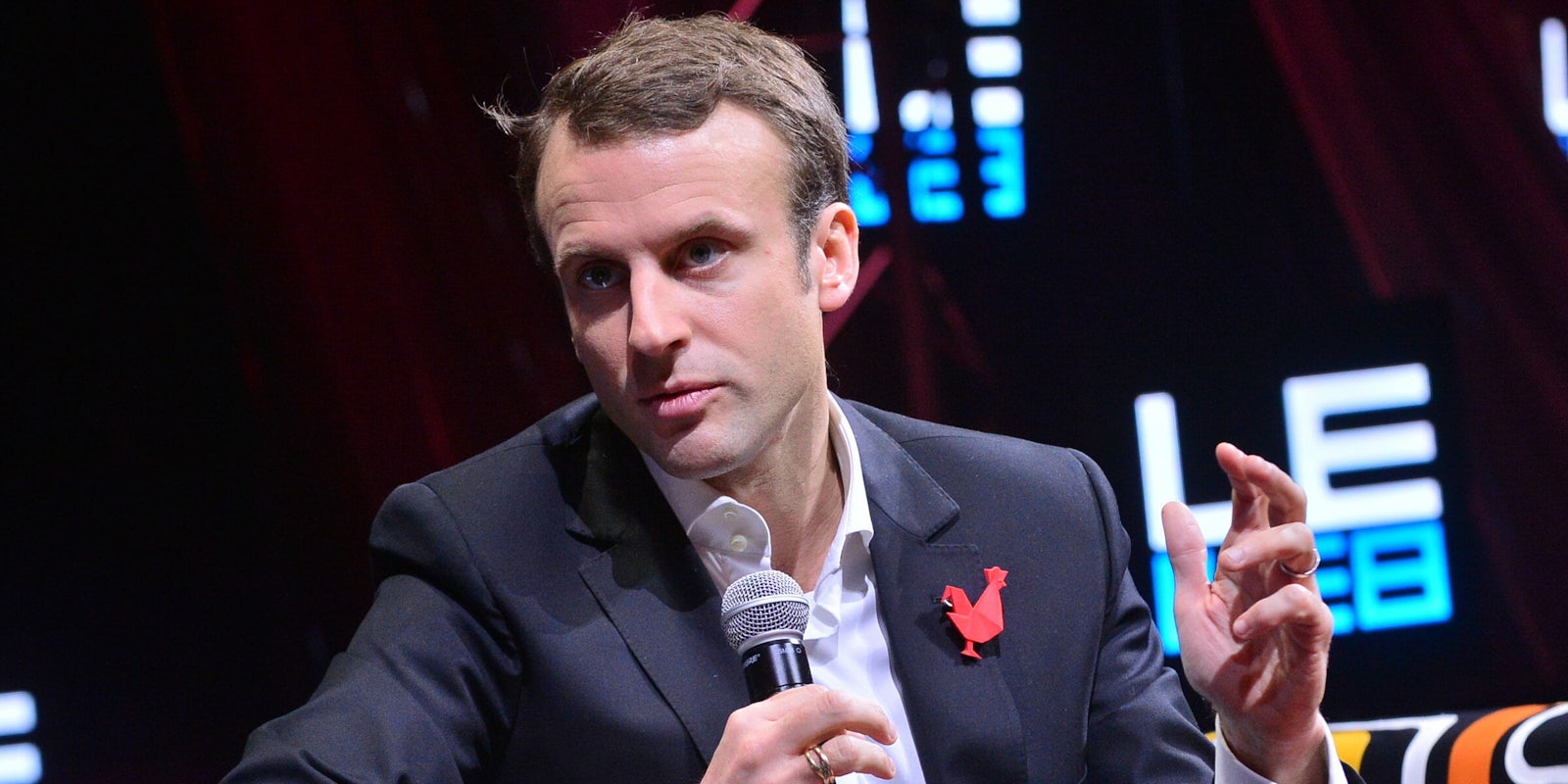On Friday, two days before France‘s presidential election, candidate Emmanuel Macron reported that his campaign had been massively hacked with thousands of emails and internal communications made public.
The announcement came just minutes before the end of the official presidential campaigning season, the Washington Post reported. Campaigning in France ends one day before voting begins, and candidates can’t campaign or give interviews to media on the day before voting.
“Intervening in the last hour of the official campaign, this operation is obviously a democratic destabilization, as has already been seen in the United States during the last presidential campaign,” the Macron campaign said in a statement.
Specific details of the documents weren’t released, but the campaign’s statement alleged documents included emails from personal and professional accounts, contracts, and accounting statements leaked via social media. The New York Times also reported that a French online publication claimed the leaked docs were also shared on 4Chan.
The Macron campaign also claimed fake documents were “leaked” in the hack, too, though they didn’t accuse specific entities of the hacking. The Macron campaign immediately filed complaints with France’s National Commission for Campaign Accounts and Political Financing.
Earlier on Friday, far-right populist presidential candidate Marine Le Pen reported that her campaign’s website had also faced “regular and targeted” attacks throughout the campaign process, the New York Times reported. Le Pen staffers also said French authorities had investigated and arrested a suspect “close to extreme-left circles” who admitted to attacking the campaign website.
Macron, an independent centrist, is up against the far-right populist Le Pen, who the Post reports has benefited from Russian support—both financially and from the country’s state-run media. Amid allegations of Russian hacking and “influence campaigns” during the U.S. presidential election that continue to be a point of contention and concern between Americans, news of the hack stirred theories of another attack to undermine the electoral process.
“The ambition of the authors of this leak is obviously to harm the movement En Marche! in the final hours before the second round of the French presidential election,” the statement read, referring to Macron’s centrist political movement “En Marche.”
The hacking allegations come after months of other Russian hacking claims made by the Macron campaign, all denied by Russian president Vladimir Putin. In March, the French government suspended electronic voting for French citizens overseas after France’s National Cybersecurity Agency reported “an extremely high risk” of cyberattacks and hacking of the election.
According to the Post, Le Pen has multiple financial ties linked to Russian lending sources, has also used her campaign to push for an improved alliance between France and Russia, and had visited with Putin in March.
Both the electoral commission and the Macron campaign have asked journalists to not publicize the contents of the leak, the former body asserting possible criminal offenses for disseminating false information.
“We call upon the news outlets that wish to report on this operation to shoulder their responsibilities, in all good conscience. Indeed, this is not a simple hacking operation but well and truly an attempt to destabilize the French presidential election,” the Macron campaign wrote. “It is therefore important to consider the nature of the leaked documents, to be fully aware of the fact that a large part of them are purely and simply fake, and the appropriateness of giving an echo to this destabilization operation.”


